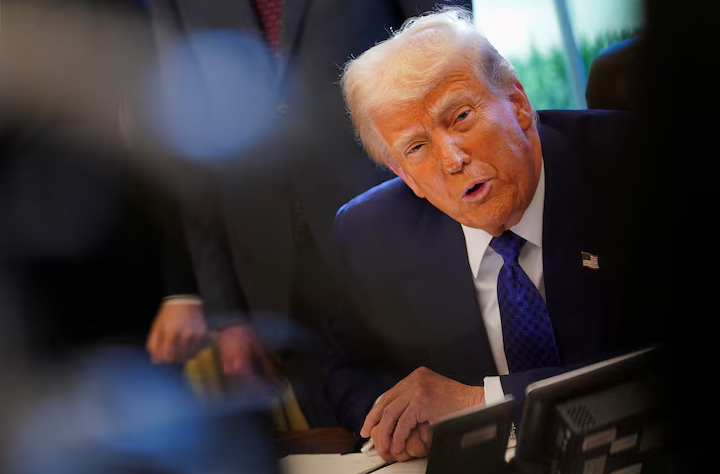In a sweeping move to reshape the federal workforce, President Donald Trump’s administration has initiated significant layoffs across multiple agencies, targeting tax enforcers, rocket scientists, and bank regulators. This unprecedented action aims to downsize government operations and reduce spending.
IRS Faces Major Reductions
As the tax-filing season progresses, the Internal Revenue Service (IRS) has identified 7,500 employees for dismissal, primarily affecting those involved in tax enforcement and compliance. These cuts exclude personnel essential for processing tax returns by the April deadline.
Further reductions may be on the horizon, potentially impacting the agency’s 100,000-strong workforce. This move follows Republican opposition to the IRS staff expansion under former President Joe Biden, which aimed to enhance tax collection and address the federal budget deficit.
NASA and FDIC Also Affected
The National Aeronautics and Space Administration (NASA) is expected to lay off approximately 1,000 recent hires, including rocket scientists, with the possibility of additional cuts. This decision has instilled fear among the agency’s 18,000 employees, leading many to refrain from voicing dissent.
Similarly, the Federal Deposit Insurance Corporation (FDIC), responsible for overseeing banks, has terminated an unspecified number of new hires. This action could exacerbate staffing challenges at the 6,000-person agency, where over a third of employees are eligible for retirement.
Elon Musk’s Role in Government Overhaul
Tech entrepreneur Elon Musk leads the Department of Government Efficiency (DOGE), an initiative established to streamline federal operations and eliminate wasteful spending.
Since President Trump’s inauguration last month, DOGE has aggressively reduced staffing across various agencies. While the White House has not disclosed the total number of layoffs, reports from agency employees indicate widespread job losses.
Despite its name, DOGE is not a formal Cabinet-level department but operates as a temporary organization under the U.S. Digital Service. Musk’s team claims to have saved $55 billion to date, a modest portion of the annual $6.7 trillion federal budget. The focus has been on probationary employees hired within the past year, who lack full employment protections.
Controversies and Legal Challenges

The restructuring has not been without controversy. Several Department of Justice officials resigned after refusing directives perceived as politically motivated, including dropping a corruption case against New York Mayor Eric Adams. Additionally, the acting head of the Social Security Administration, Michelle King, resigned following DOGE’s request for access to extensive personal and financial data.
Opponents of the downsizing efforts have turned to the courts for intervention. A federal judge in Washington recently declined to prevent DOGE from accessing student loan records, citing insufficient evidence of potential misuse. Another ruling is anticipated on a request by Democratic attorneys general from 13 states to block DOGE personnel from reviewing sensitive records at various agencies.
These developments underscore the administration’s commitment to overhauling the federal government, despite legal challenges and internal dissent. The long-term impact of these actions on government efficiency and public services remains to be seen.



